23+ SAMPLE Recruitment Report
-
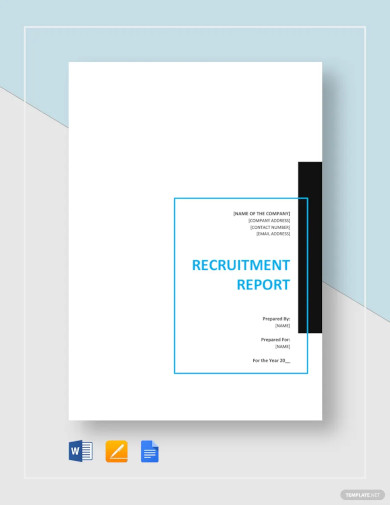
Recruitment Report Template
download now -
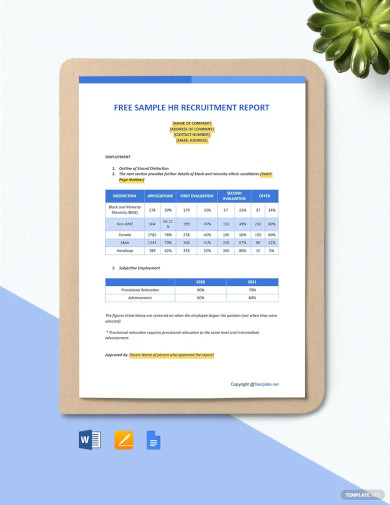
Sample HR Recruitment Report Template
download now -
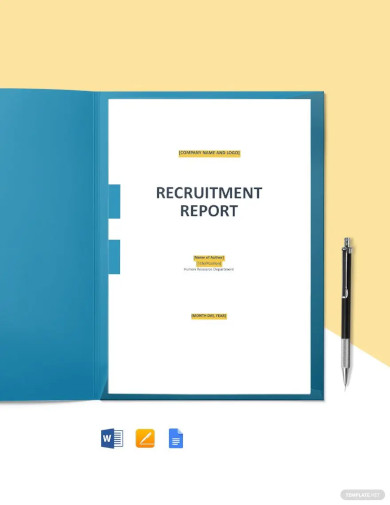
HR Recruitment Report Template
download now -
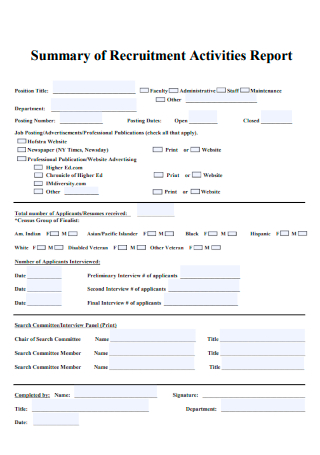
Summary of Monthly Recruitment Activities Report
download now -
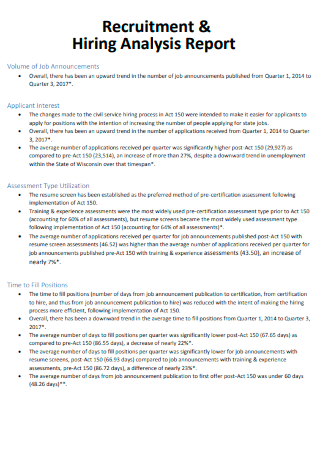
Dashboard Recruitment & Hiring Analysis Report
download now -
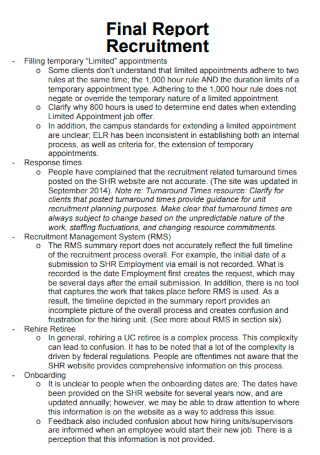
Final Weekly Report Recruitment
download now -
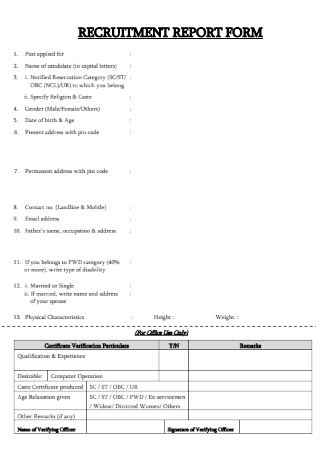
Candidate Recruitment Report Form
download now -
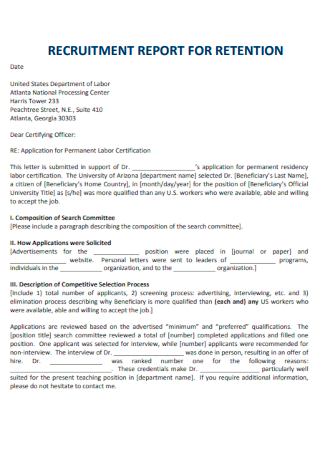
Recruitment Vacancy Report for Retention
download now -
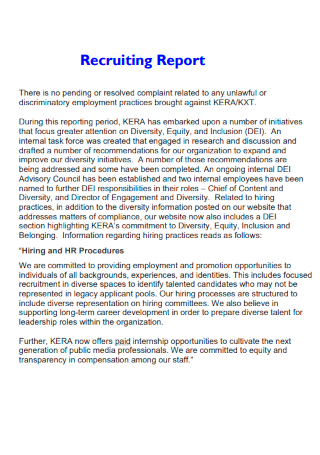
Sample Staff Recruiting Report
download now -
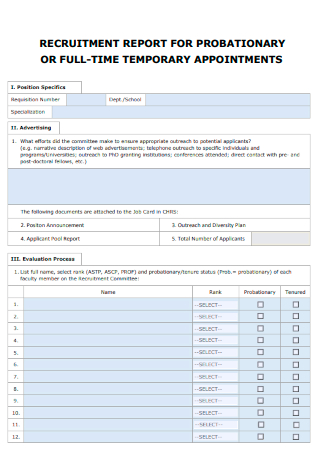
HR Analytics Recruitment Report
download now -
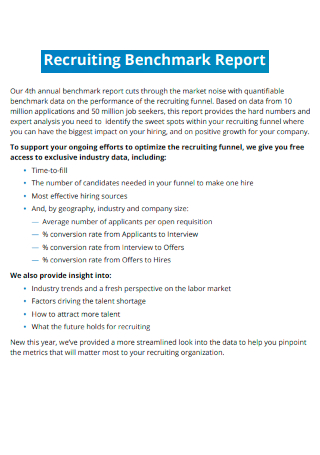
Recruiting Funnel Benchmark Report
download now -
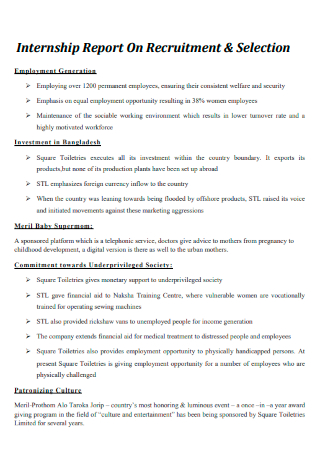
Internship Report On Client Recruitment & Selection
download now -
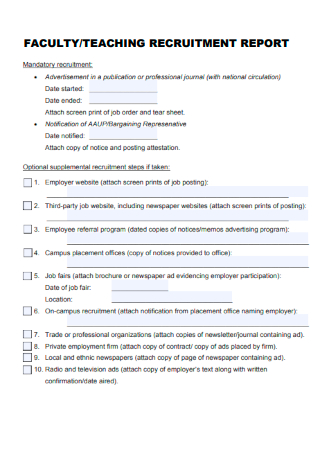
Faculty & Teaching Management Recruitment Report
download now -
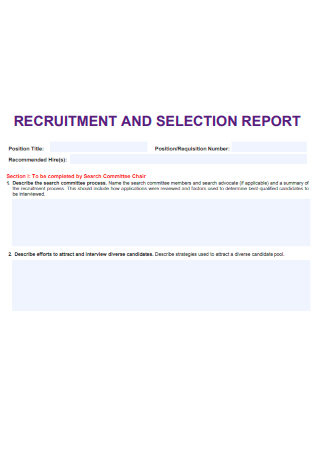
Talent Acquisition Recruitment & Selection Report
download now -
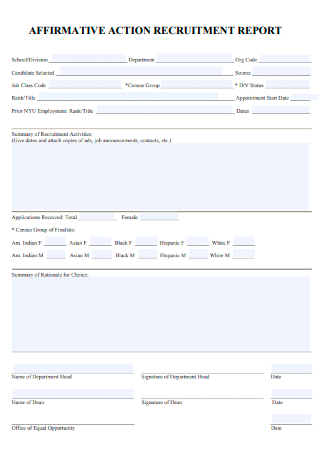
Daily Affirmative Action Recruitment Report
download now -
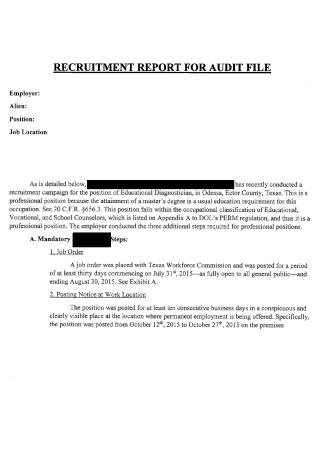
Recruitment Report for Year End Audit File
download now -
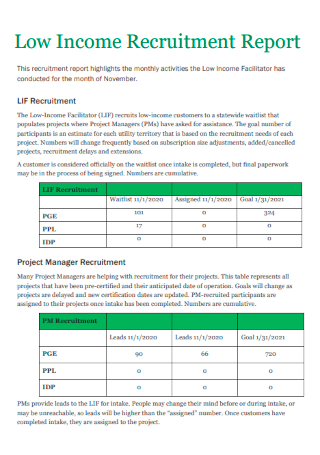
Low-Income Human Resources Recruitment Report
download now -
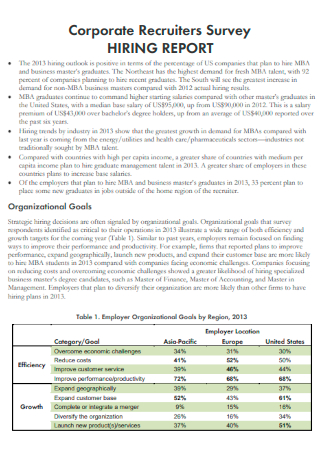
Corporate Recruiters Survey Quarterly Hiring Report
download now -
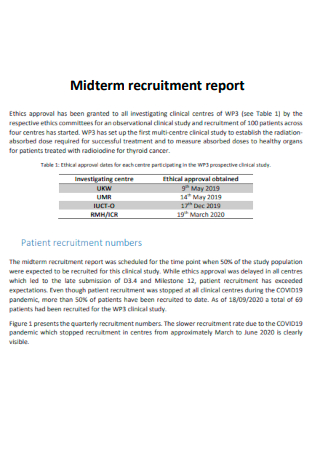
Yearly Recruitment Report
download now -
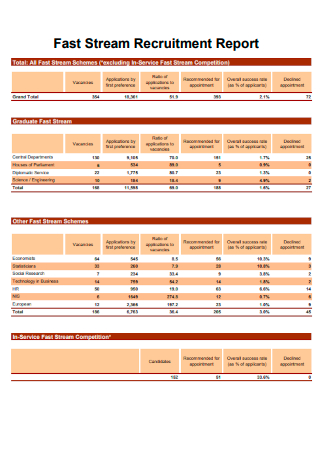
Fast Stream Tracker Recruitment Report
download now -
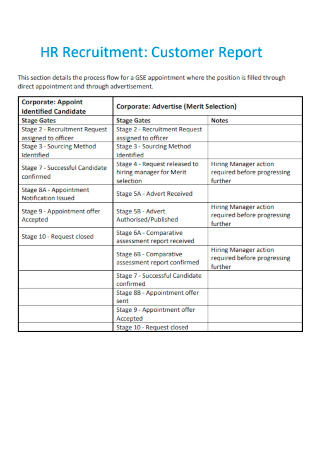
HR Recruitment Customer Report Executive Summary
download now -
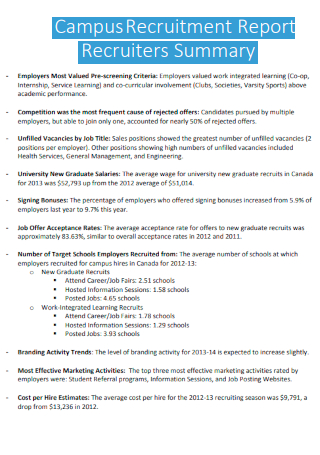
Campus Recruitment Report Recruiters Summary
download now -
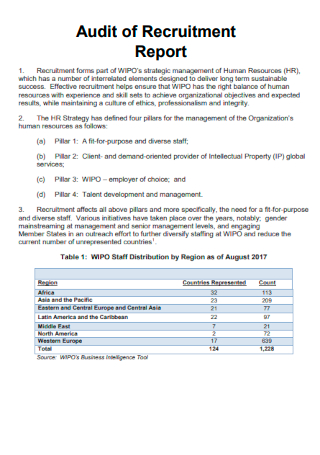
Audit of Recruitment Process Report
download now -
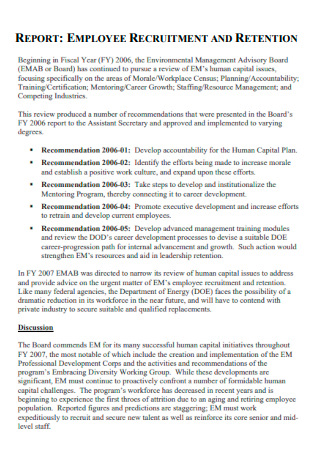
Employee Recruitment and Retention Report
download now
What Is a Recruitment Report?
A recruitment report is a formal written report that outlines all the details about a recruitment campaign or process. The report seeks to evaluate or assess an organization’s talent acquisition and recruitment effort.
According to an online report compiled by Zety, 1 in 6 job candidates who applied for a position were asked for an interview. In 2016, the average time it took to hire a new employee was 39 days. Further, around 87% of recruitment specialists and professionals use LinkedIn to check potential candidates.
Ways of Recruiting
There are many ways of recruiting an individual. In the professional world, human resource practitioners are typically in charge of recruiting new employees. The screening process may vary from company to company. However, there are several universal ways of recruiting a person. The following examples describe just some of these common methods.
Qualities of a Good Recruitment Officer
Recruitment is no easy task. A good talent acquisition specialist, recruitment professional or headhunter requires a set of skills and qualities that will enable them to be more effective in their job. Fortunately, these skills can be learned and nurtured with enough practice and commitment. The following examples describe some major qualities a good recruitment officer ought to possess.
How to Create a Recruitment Report
To create a recruitment report, you need a clear objective or direction if you want a comprehensive report. And if you are looking for reliable report templates to use as reference, there are numerous sample templates in the selection above that are free and editable. Simply choose one that suits your needs and follow the basic steps below.
Step 1: Objective
As mentioned earlier, you need to have a clear recruitment objective or smart goal before you can come up with a comprehensive and reliable report. The first step is figuring out what it is you want to gain from your recruitment report. The objectives may vary depending on the needs of the company or organization. For instance, a company may find the need to expedite the job application process. While others may want to focus on creating a more efficient onboarding system. Just keep in mind that your objective should be attainable and realistic. An objective that’s too long or complicated might not help as well. As much as possible, try to keep your statements brief and direct.
Step 2: Organization
Once you have stated your recruitment objective, the next step is to figure out the organization of your report. In other words, you need to establish a format that will work or serve your objective accordingly. How you organize your report matters. Note that it is directly tied to your objectives. So be sure to arrange or order your report in a logical manner. In your HR dashboard, you can list and arrange your items by department or by job position. Alternatively, you can also label it per quarter or per year. If you are still unsure of how to proceed, you can use any of the available templates above for more ideas.
Step 3: Figures and Results
The meat of your recruitment report ought to be the actual figures and variables of your recruitment process or campaign. If your objective is to highlight a recruitment campaign or plan, it might be helpful to include significant milestones or specific plans in your report. But if your goal is to streamline your company’s recruitment process, you need to input the actual numbers and figures. This includes the number of applicants, number of open positions, number of shortlisted candidates, etc. Further, make sure to install a mechanism for tracking and updating your data.
Step 4: Recommendations
Once you have covered all the data in your report, the last step is to share your recommendations. The work does not end with just filling in the necessary details. There must be an assurance that the lessons gained from the report will be applied. For instance, if your actual recruitment data does not meet your objectives or at par with your expectations, then you have to indicate what the next steps are. This section is meant to address any recruitment gaps or areas that need improvement by providing concrete action plans and strategies.
FAQs
What is a recruitment report?
A recruitment report is a formal report that outlines various details or data regarding a company’s recruitment process or campaign.
How do you write a recruitment report?
To write a recruitment report, you need to establish a clear objective and organize your report in such a way that it meets your recruitment objectives. You can refer to the previous section for a more detailed instruction guide on how to create a basic recruitment report.
What are the 5 stages of recruitment?
According to IceHRM, the five stages of recruitment are recruitment planning, strategy development, candidate search, screening, and finally, evaluation and monitoring.
A good recruitment report is specific and relevant. More importantly, it should be backed up by solid data and supporting facts. Browse the extensive library of editable templates above, select one that suits your needs and create your own comprehensive recruitment report now!
